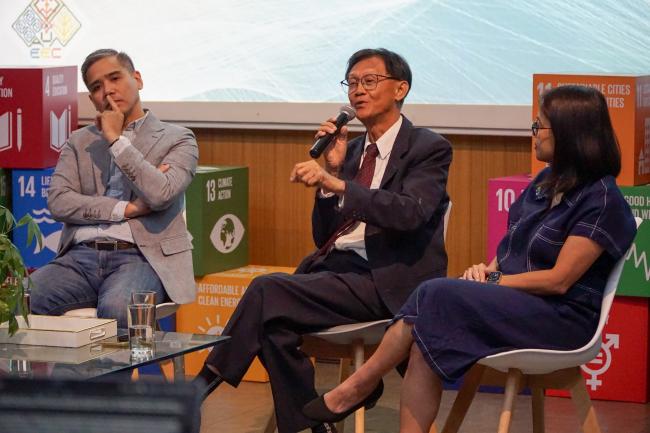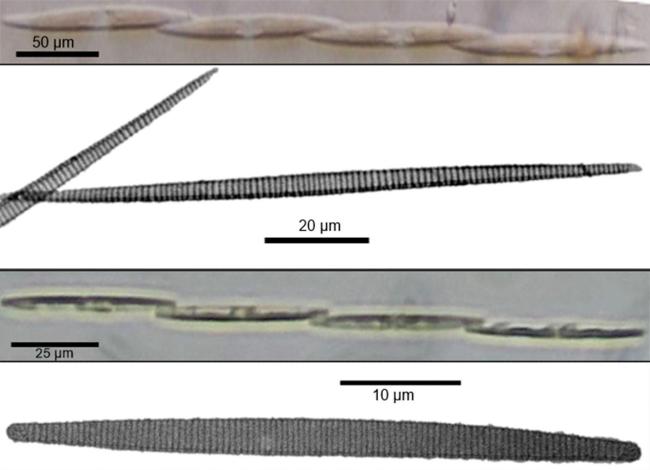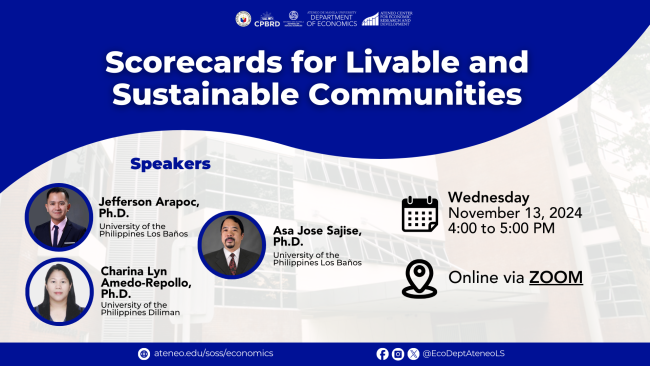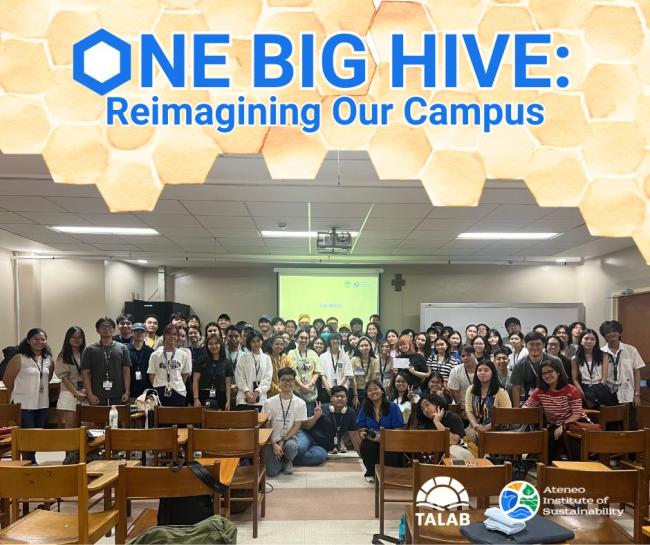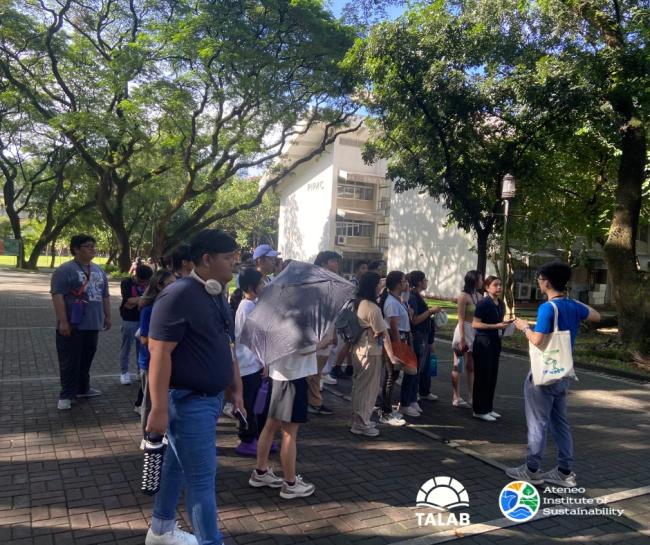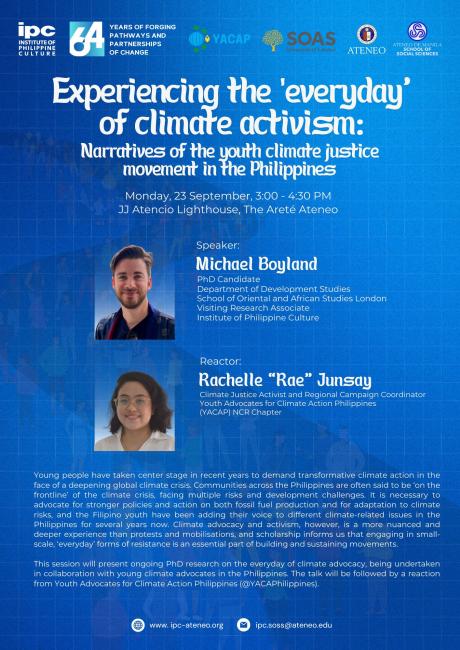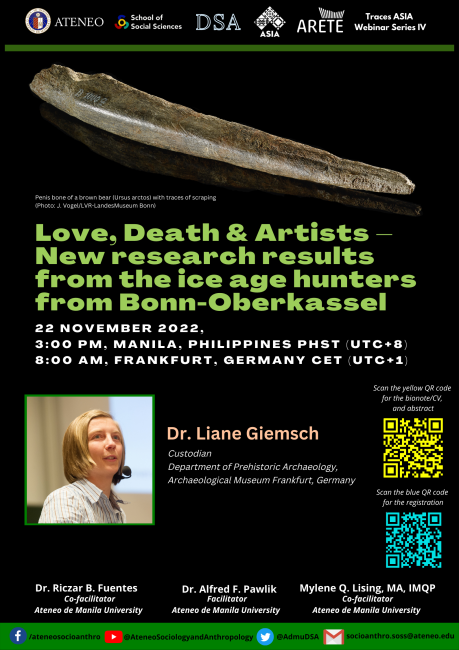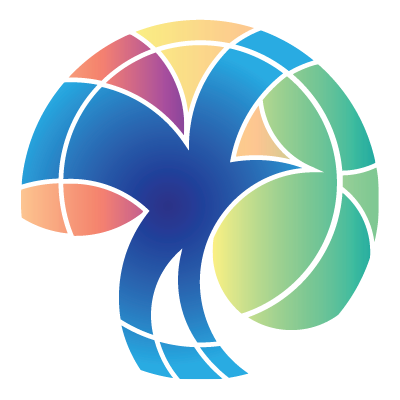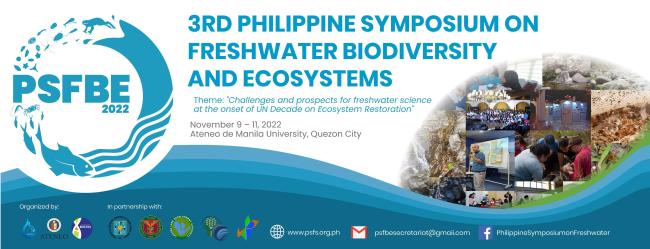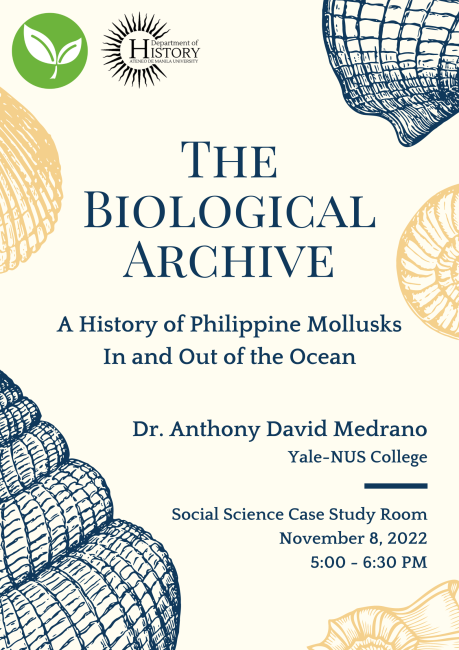Ateneo and the UN Sustainable Development Goals
Ateneo de Manila University’s Commitment to Water Discharge Guidelines and Standards
The Laguna Lake Development Authority (LLDA) grants Ateneo de Manila University two Discharge Permits after the University complies with various environmental regulations.
Discharge Permit DP(N)-25b-2023-05611 (Issued September 4, 2023)
Under this permit, Ateneo is authorized to discharge wastewater with a total annual Biochemical Oxygen Demand (BOD) not exceeding 174 kilograms. Effluent characteristics, such as BOD, ammonia, fecal coliform, phosphate, nitrate, oil, grease, and surfactants, are subject to the limits set by the Laguna Lake Development Authority (LLDA) and Department of Environment and Natural Resources (DENR) regulations, in compliance with Republic Act (RA) 4850, Presidential Decree No. 813, Executive Order No. 927, and the Clean Water Act (RA 9275).
Discharge Permit DP(R)-25b-2024-06101 (Issued September 5, 2024)
In addition to its earlier permit, Ateneo received a new discharge permit for 2024, allowing the wastewater discharge at an increased total annual BOD limit of 214 kilograms. Like the 2023 permit, Ateneo must ensure its wastewater quality remains within LLDA’s regulatory standards.
Key Monitoring and Compliance Requirements:
- Submit notarized quarterly self-monitoring reports (SMR) to the LLDA on specified dates and manifests from DOH-registered service providers for sludge and septage disposal.
- Install effluent sampling stations to monitor wastewater quality before discharge into receiving bodies of water.
- Appoint a Pollution Control Officer (PCO) to undergo regular training and secure LLDA accreditation.
- Maintain comprehensive records of wastewater treatment operations to be made available during LLDA inspections.
- Display discharge permits in visible campus areas.
- Renew before expiration to avoid cancellation.
Failure to comply with the permit’s conditions or submit required reports could result in penalties, a revocation of the permit or legal actions as provided by the Philippine Clean Water Act (RA 9275) and RA 4850.
Through these processes, the University upholds its responsibility for environmental protection, its commitment to cleaner water systems, and its support of the Laguna de Bay ecosystem. These actions align with the university’s broader sustainable development goals, including compliance with the Clean Air Act (RA 8749).
Ateneo de Manila University and the Coastal Cities at Risk (CCARPH) Project
Ateneo de Manila University's Coastal Cities at Risk (CCARPH) project collaborates with various local communities, governments, and stakeholders to engage with residents and stakeholders living in coastal cities. The project seeks to understand their needs and involves them in the planning and implementation of resilience-building activities.
The University runs educational activities in various communities to raise awareness about overfishing, illegal, unreported and unregulated fishing and destructive fishing practices. Some of these organizations are listed below:
- Bantayan Island, Cebu - Bantayan Island Coastal Resource Management Council
- Santa Fe, Cebu - Santa Fe Municipal Fisheries and Aquatic Resources Management Council.
- Zamboanga City - City Government of Zamboanga.
- Palawan - Palawan Council for Sustainable Development.
News and Features
The Lily holds roundtable discussion on leadership challenges in implementing Education for Sustainable Development in Asia
On 5 November 2024, The Lily Gokongwei Ngochua Leadership Academy, in partnership with the United Board for Christian Higher Education in Asia, the Ateneo Institute...
Two Pseudo-nitzschia diatom species identified in Luzon
P. pungens and P. brasiliana can produce a neurotoxin that may cause severe sickness and permanent short-term memory loss.
Scorecards for Livable and Sustainable Communities
The Scorecards for Livable and Sustainable Communities propose new "Blue and Green Economy Scorecards" for the Philippines, empowering LGUs with data-driven tools to track sustainability in marine and terrestrial ecosystems. Developed by experts in economics and marine science, these scorecards promote transparent, accountable governance and align with international sustainability standards.
One Big Hive: AIS hosts design thinking workshop for second consecutive year
In celebration of the Season of Creation, the Ateneo Institute of Sustainability (AIS) hosted a design thinking workshop titled "One Big Hive: Reimagining the Campus"...
Ateneo Institute of Sustainability hosts three sessions for TALAB 2024
With the theme of "Integral Ecology: Caring for Our Common Home," this year's Talakayang Alay sa Bayan (TALAB) inspired and challenged the Ateneo community to...
Experiencing the 'everyday’ of climate activism: Narratives of the youth climate justice movement in the Philippines
The Institute of Philippine Culture, cordially invites you to join the session on Experiencing the 'everyday’ of climate activism: Narratives of the youth climate justice...
Pagination
Events
Lecture / Talk / Discussion
Traces ASIA Webinar Series IV Lecture 3 | Love, Death & Artists – New research results from the ice age hunters from Bonn-Oberkassel
Tue, 22 Nov 2022
Online
Meeting / Consultation / Town hall / Forum
The President's Hour, November 2022
Fri, 18 Nov 2022
Online
In this last edition of The President's Hour for 2022...
Academic Conference
3rd Philippine Symposium on Freshwater Biodiversity and Ecosystems (PSFBE2022)
Wed, 09 Nov 2022
Ateneo de Manila University Loyola Heights campus
It is our pleasure to announce that the 3rd Philippine...
Lecture / Talk / Discussion
The Biological Archive: A History of Philippine Mollusks In and Out of the Ocean
Tue, 08 Nov 2022
Social Science Case Study Room and via Zoom
